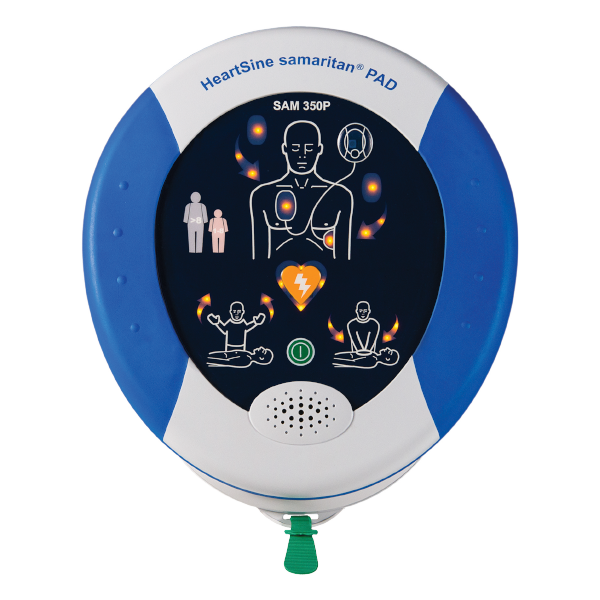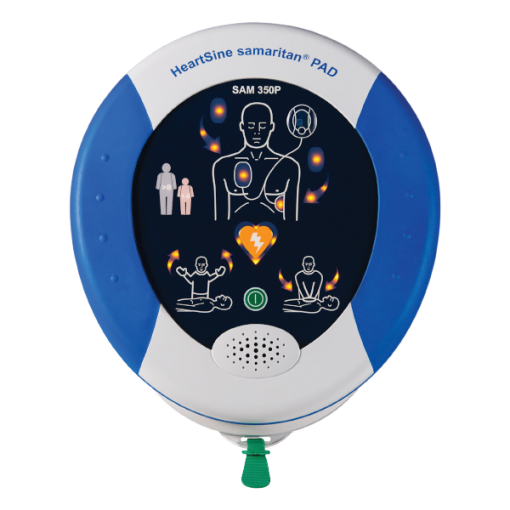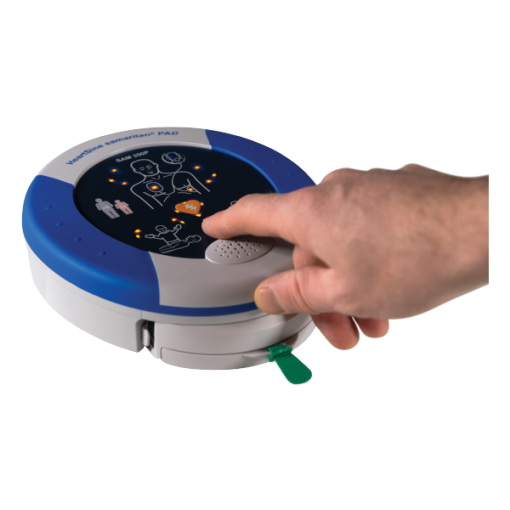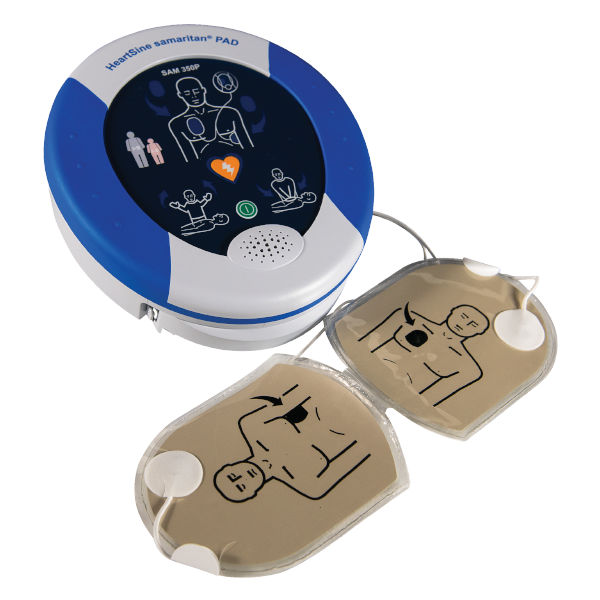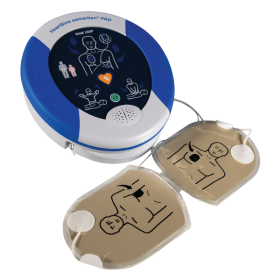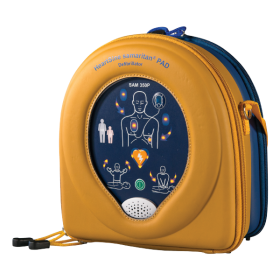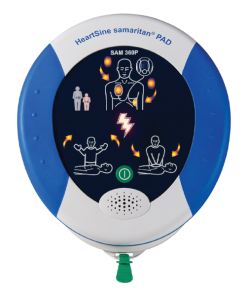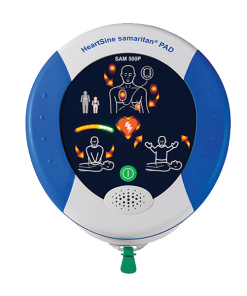Description
Designed for ease of use. This exceptionally rugged, aircraft compliant defibrillator, is a sophisticated device, yet is designed to be simple and easy to operate.
Features:
- Pad-Pak electrode pad and battery combination makes maintenance easy with only one item to replace
- Lightweight and compact – the smallest and lightest AED available
- Simple-to-own defibrillators, designed to be durable, affordable and highly user friendly
- CPR coaching with metronome
- Exceptionally rugged
- Aircraft compliant – ETSO certified Pad-Pak
- Energy Selection: Adult Pad-Pak 150J > 150J > 200J | Paediatric-Pak 50J > 50J > 50J
Available unit options:
Semi-automatic Defibrillator: Shock button is required to be pushed if a shockable heart rhythm is detected.
SKU: HEARTSINE 350P
Specs
Physical With Pad-Pak Inserted
Size: 20cm x 18.4cm x 4.8cm (8.0in x 7.25in x 1.9in)
Weight: 1.1kg (2.4lbs)
Defibrillator
Waveform: Self-Compensating Output Pulse Envelope (SCOPE™) Optimised biphasic escalating waveform compensates energy, slope and duration for patient impedance.
Warranty: 8-year limited warranty
Patient Analysis System
Method: Evaluates patient’s ECG, signal quality, electrode contact integrity and patient impedance to determine if defibrillation is required.
Sensitivity/Specificity: Meets IEC/EN 60601-2-4
Impedance Range: 20 – 230 ohms
Environmental
Operating/Standby Temperature: 0°C to 50°C (32°F to 122°F)
Transportation Temperature: –10°C to 50°C (14°F to 122°F) for up to two days. If the device has been stored below 0°C (32°F), it should be returned to an ambient temperature of between 0°C to 50°C (32°F to 122°F) for at least 24 hours before use.
Relative Humidity: 5% to 95% (non-condensing)
Enclosure: IEC/EN 60529 IP56
Altitude: 0 to 4 575 metres (0 to 15 000 feet)
Shock: MIL STD 810F Method 516.5, Procedure1(40 G’s)
Vibration: MIL STD 810F Method 514.5+, Procedure 1 Category 4 Truck Transportation – US Highways Category 7 Aircraft – Jet 737 & General Aviation.
EMC: IEC/EN 60601-1-2
Radiated Emissions: IEC/EN 55011
Electrostatic Discharge: IEC/EN 61000-4-2 (8 kV)
RF Immunity: IEC/EN 61000-4-3 80 MHZ-2.5 GHZ, (10 V/m)
Magnetic Field Immunity: IEC/EN 61000-4-8 (3 A/m)
Aircraft: RTCA/DO-160G, Section 21 (Category M) RTCA/DO-227 (ETSO-C142a)
Falling Height: 1 metre (3.3 feet)
Energy Selection
Pad-Pak: Shock1:150J; Shock2:150J; Shock3:200J
Paediatric-Pak: Shock1:50J; Shock2:50J; Shock3:50J
Charging Time
New Battery: Typically 150J in < 8 seconds, 200J in < 12 seconds
Event Recording
Type: Internal Memory
Memory: 90 minutes of ECG (full disclosure) and event/incident recording.
Review: Custom USB data cable (optional) directly connected to PC with Saver EVO™ Windows-based data review software.
Materials Used
Housing: ABS, Santoprene
Electrodes: Hydrogel, Silver, Aluminum and Polyester
Pad-Pak — Electrode and Battery Cartridge
Adult Pad-Pak (Pad-Pak-03) and Paediatric Pad-Pak (Pad-Pak-04)
*ETSO-certified aviation Pad-Pak also available.
Shelf Life/Standby Life: See the expiration date on the Pad-Pak/ Paediatric-Pak (4 years from manufacture date)
Weight: 0.2kg (0.44lbs)
Size: 10cm x 13.3cm x 2.4cm (3.93in x 5.24in x .94in)
Battery Type: Disposable single-use combined battery and defibrillation electrode cartridge (lithium manganese dioxide (LiMnO2) 18V)
Battery Capacity (New): > 60 shocks at 200J or 6 hours of continuous monitoring
Electrodes: HeartSine samaritan disposable defibrillation pads are supplied as standard with each device.
Electrode Placement: Anterior-lateral (Adult); Anterior-posterior or Anterior-lateral (Paediatric).
Electrode Active Area: 100 cm2 (15 in2)
Electrode Cable Length: 1 metre (3.3 feet)
Aircraft Safety Test (ETSO-certified Pad-Pak):
RTCA/DO-227 (ETSO-C142a)

